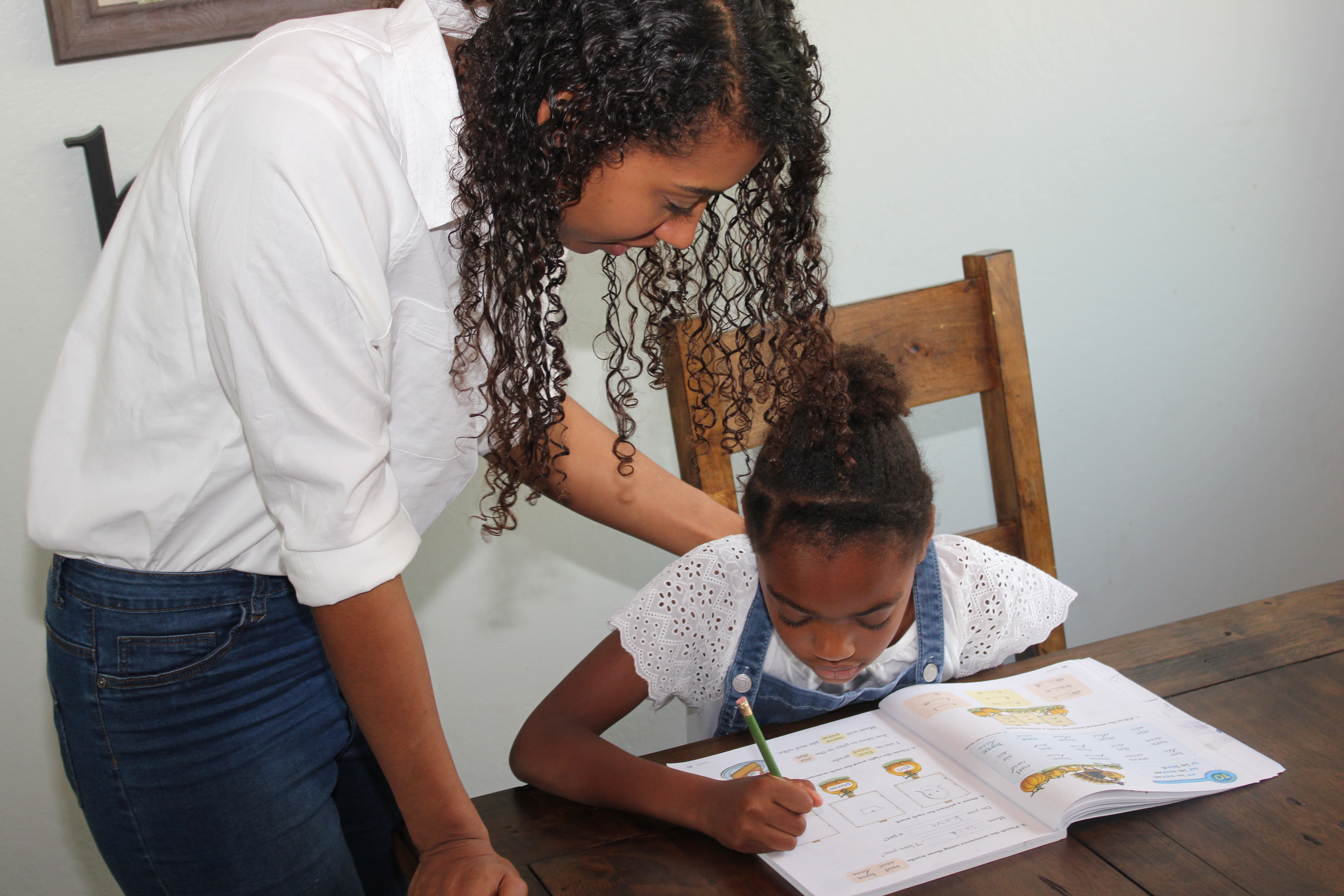
Whether you’re pandemic schooling or deciding to give full-on homeschooling a try, the transition can be overwhelming. If you’re lucky, your child is already self-motivated, and academically proactive–however, if you’re like rest of us, our children aren’t always the most driven individuals. This, obviously, can cause tension or anxiety for all members of the family, so if you need some advice on how to maintain your sanity and keep your kids excited about learning, read on.
- Research Homeschooling Methods: Homeschool methods and ideologies run the gamut from completely hands-off unschooling to a school-at-home approach–with many options in between. When you identify with a certain (or even two or three) methodologies, those ideas can help you narrow down your options (and avoid the homeschool curriculum shopping overwhelm).
- Don’t Be Boring: Kids love fun, they love surprises, and they love games, so why not use those characteristics to your advantage? Purchase a some educational games and play them one or two days a week. A few of our family favorites are: Settlers of Catan, Cover Your Assets, Bananagrams, Code Names and Ticket to Ride. Not only will your child be learning problem solving, but they’ll be learning math, social skills, strategy, how to win or lose graciously, critical thinking, focus and developing their communication skills. Plus, you’ll be making memories together and there’s no pressure of ‘guess what the teacher is thinking’ or the ominous red pen.
- Give Yourself Permission to Be Flexible: Often parents new to homeschooling feel that they should homeschool 9am-2pm, Monday to Friday. However, the happiest homeschoolers I know find a rhythm that works for their family. Maybe that’s homeschooling only two hours every day, maybe that’s homeschooling every other day, or maybe it’s homeschooling exclusively on the weekend when mom and dad aren’t exhausted by their jobs. Whatever schedule works best for your family, and allows the best chance of positive interactions and family time together, is the best option for you.
- Relax and Be Forgiving: Relaxing into homeschooling can be hard. I feel you. However, trying to force homeschooling if there is tension between you and your child is pointless. Start the day off intentionally and choose to be more gentle in your speech and interactions with your kids. Tell them you love them daily, and surprise them with hugs, a treat, or compliments. You’ll likely be surprised how much more receptive your children become to you as their teacher.
- If All Else Fails–Just Read Together. Reading together as a family is, in my opinion, the most crucial thing to educate young minds and teach them to think independently and problem solve. Whether you choose poetry (think anything from limericks to sonnets), to autobiographies (some great ideas for family read alouds are Anne Frank, Chinese Cinderella or if you have kids 5-10 years old the Scholastic I Am series), to fiction novels… the world is your oyster!

Homeschooling is hard work. And embracing and working through the chaos is even harder. But the results are well worth it. Instead of children who are peer-focused, their world becomes family-centered. Education can be personalized. Relationships between parent and child are strengthened and obnoxious mannerisms reduced.
Hopefully, by adding these tips to your routine, you’ll be able to stop feeling ready to throw in the towel and start really enjoying your homeschooling time together.


